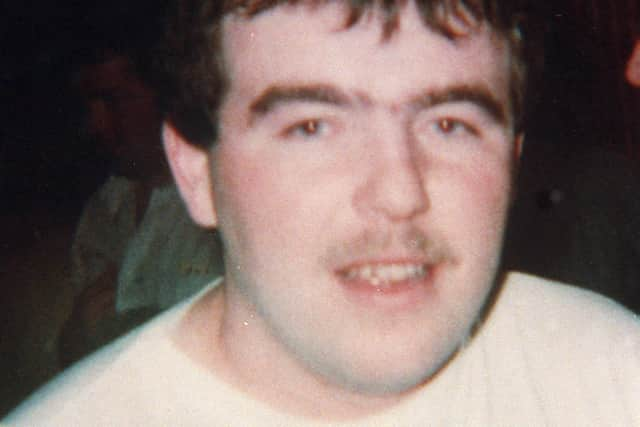European Court of Human Rights rules against claims over army killing of terrorist Martin McCaughey near Loughgall
and live on Freeview channel 276
Martin McCaughey, 23, was shot dead near Loughgall by the SAS on October 9 1990.
The court’s ruling noted the soldiers had been carrying out a night-time surveillance operation at a farm when Mr McCaughey and another person, Desmond Grew, appeared with AK47 rifles wearing gloves and balaclavas.
Advertisement
Hide AdAdvertisement
Hide AdIn a statement after his death, the Provisional IRA said publicly that Mr McCaughey had been an IRA volunteer on active service at the time.


A decision was made in April 1993 not to prosecute the soldiers involved on the basis that there was not sufficient evidence to prove they had not been acting in self-defence.
An inquest into Mr McCaughey’s death in 2012 returned a verdict of “lawful killing”.
His sister Sally Gribben took a case to the European court that there had been a failure to conduct an effective investigation into her brother’s death.
Advertisement
Hide AdAdvertisement
Hide AdIn a ruling published on Thursday, the court found the inquest “had undoubtedly been thorough”.
It found “certain weaknesses in the inquest”, including the failure to disclose to the next of kin material relating to other fatal shootings the soldiers had been involved in.
However, it did not consider that those weaknesses, either individually or cumulatively, had undermined the inquest’s meeting of the investigation requirements of Article 2, namely to secure the effective implementation of the domestic laws which protect the right to life and, in those cases involving state agents or bodies, to ensure their accountability for deaths occurring under their responsibility.
The court concluded the application was “inadmissible as manifestly ill-founded”.
A message from the Editor:
Advertisement
Hide AdAdvertisement
Hide AdThank you for reading this story on our website. While I have your attention, I also have an important request to make of you.
In order for us to continue to provide high quality and trusted local news on this free-to-read site, I am asking you to also please purchase a copy of our newspaper whenever you are able to do so.
Our journalists are highly trained and our content is independently regulated by IPSO to some of the most rigorous standards in the world.
But being your eyes and ears comes at a price. So we need your support more than ever to buy our newspapers during this crisis.
Advertisement
Hide AdAdvertisement
Hide AdWith the coronavirus lockdown having a major impact on many of our local valued advertisers - and consequently the advertising that we receive - we are more reliant than ever on you helping us to provide you with news and information by buying a copy of our newspaper when you can safely.
You can also enjoy unlimited access to the best news from across Northern Ireland and the UK by subscribing to newsletter.co.uk
With a digital subscription, you can read more than five articles, see fewer ads, enjoy faster load times, and get access to exclusive newsletters and content. Visit https://www.newsletter.co.uk/subscriptions now to sign up.
Thank you